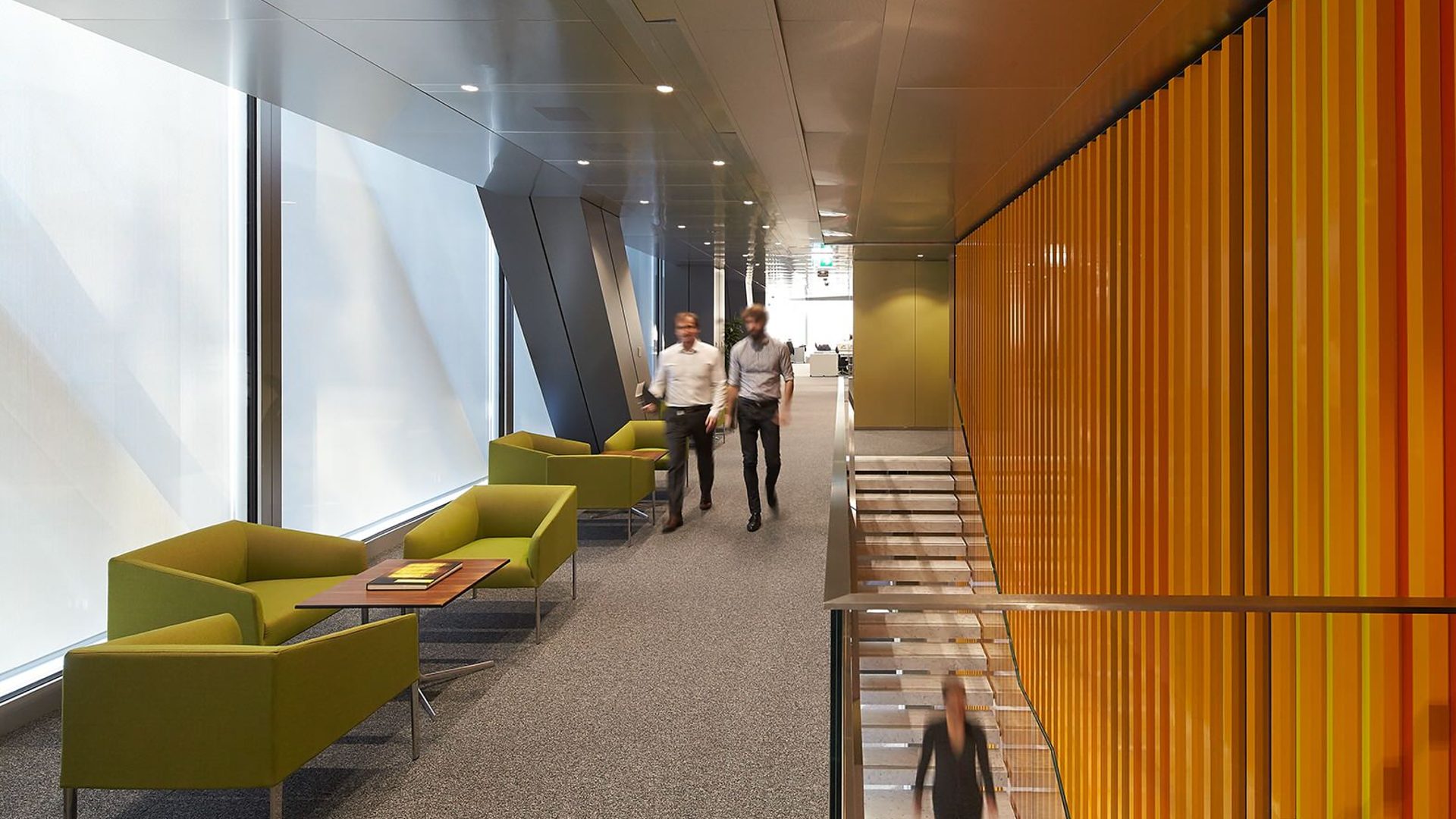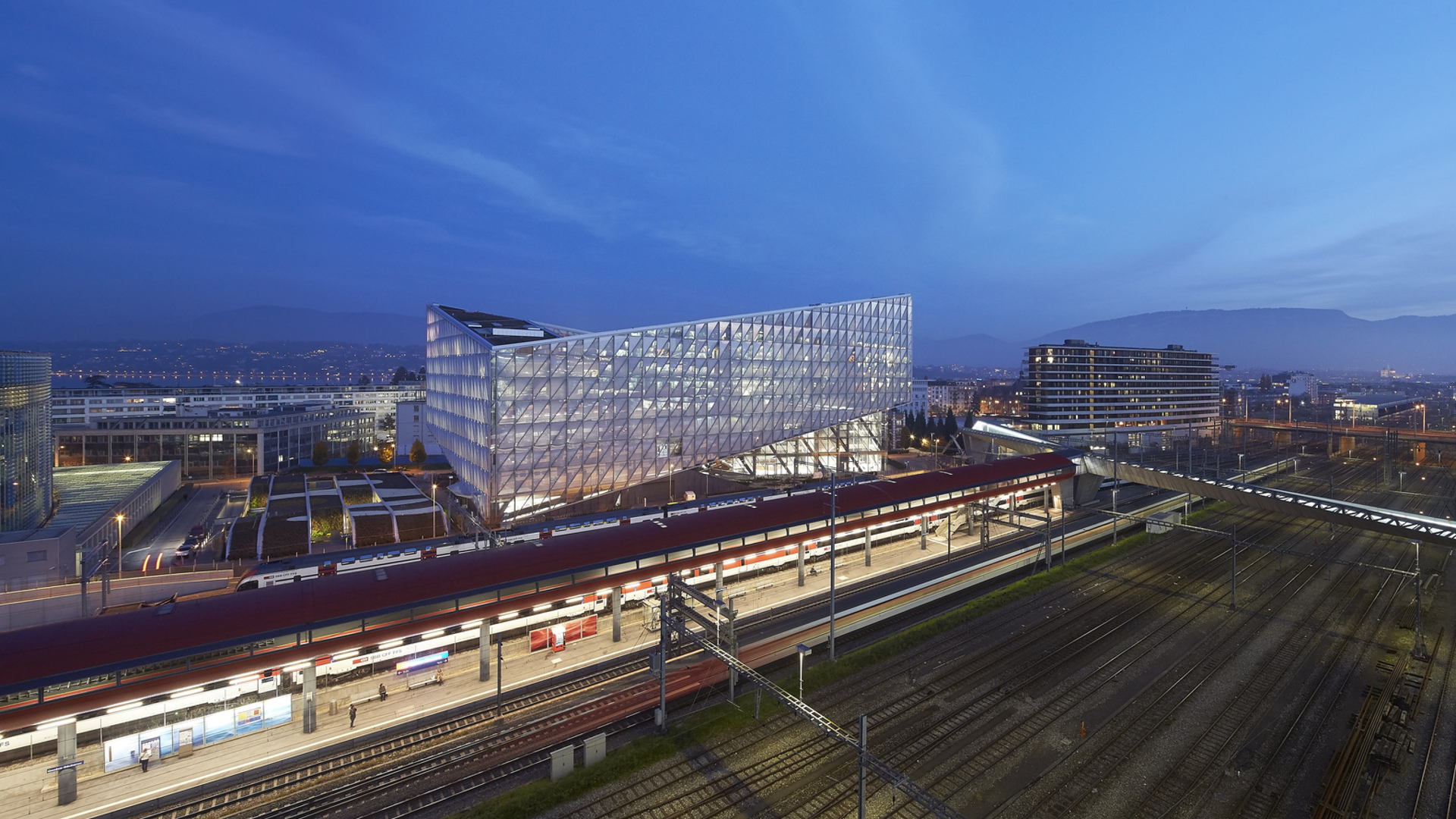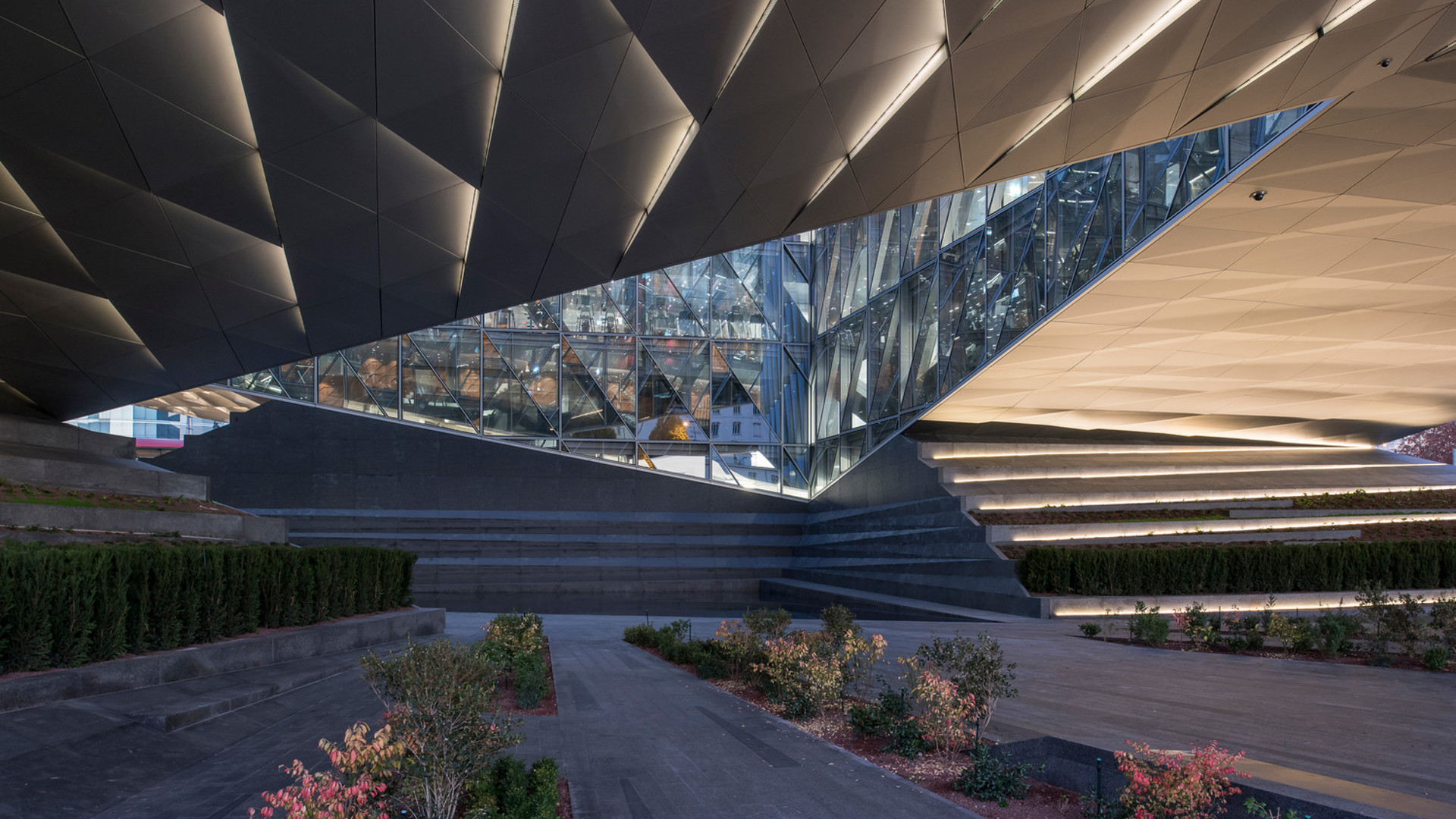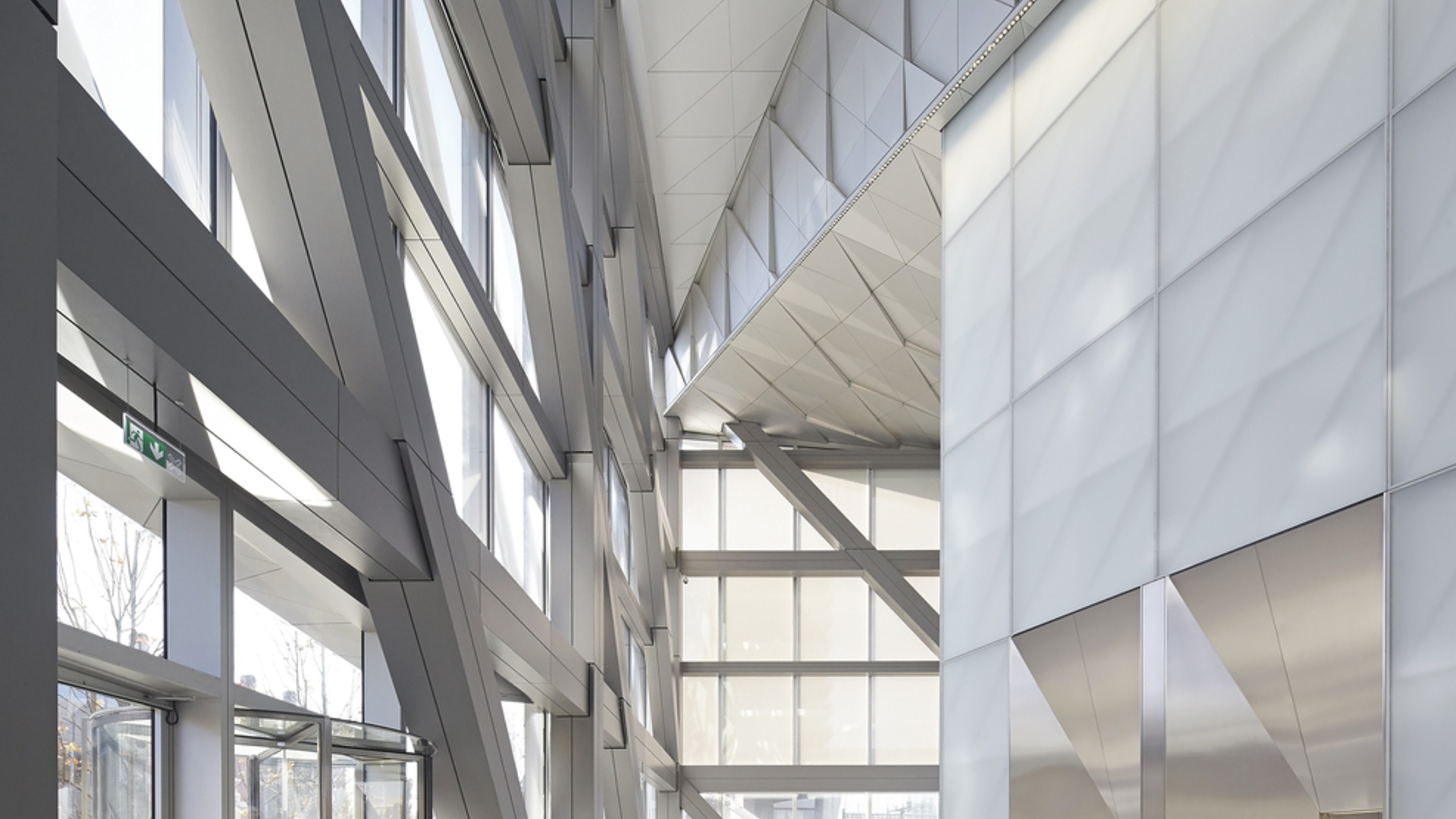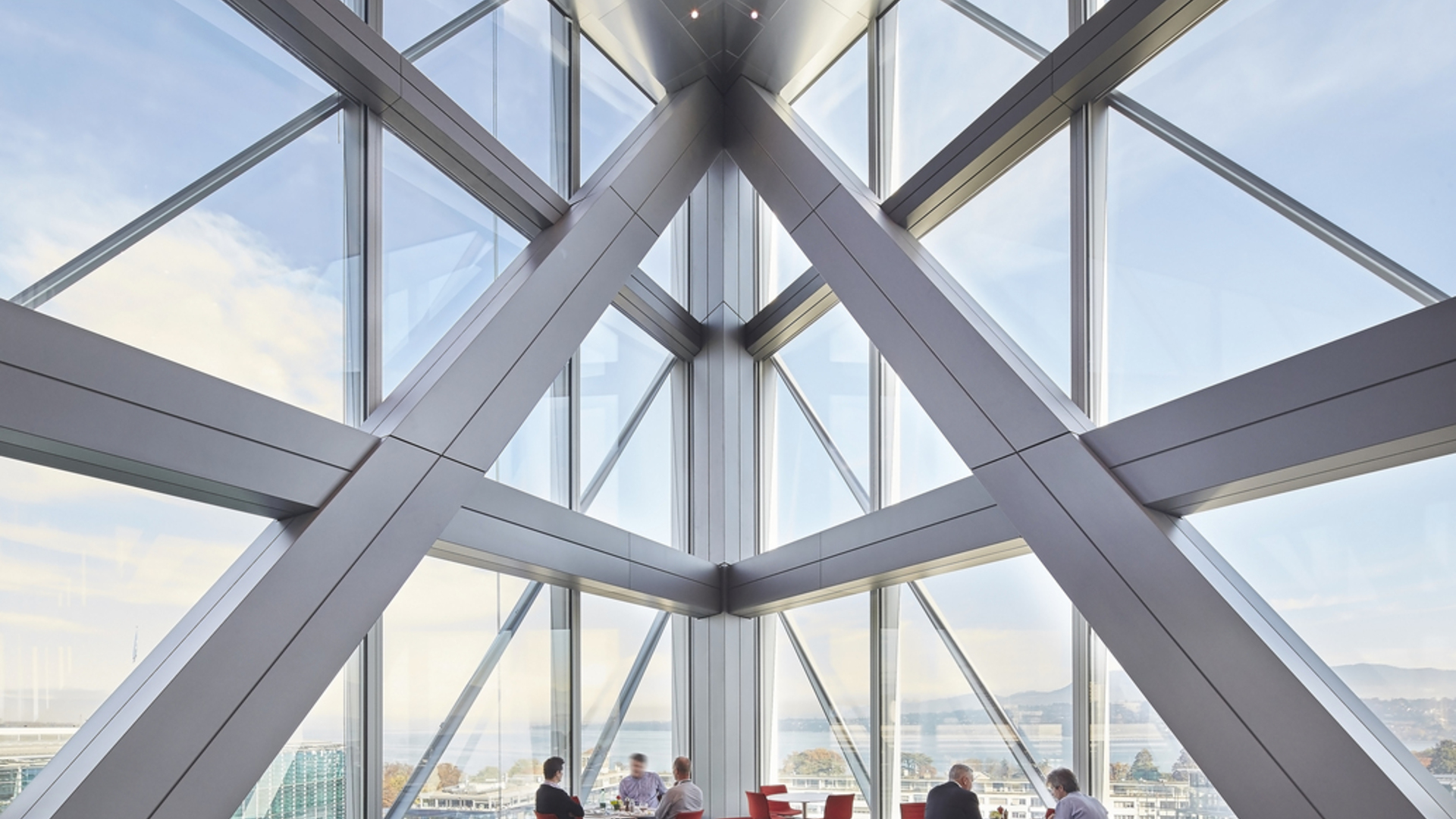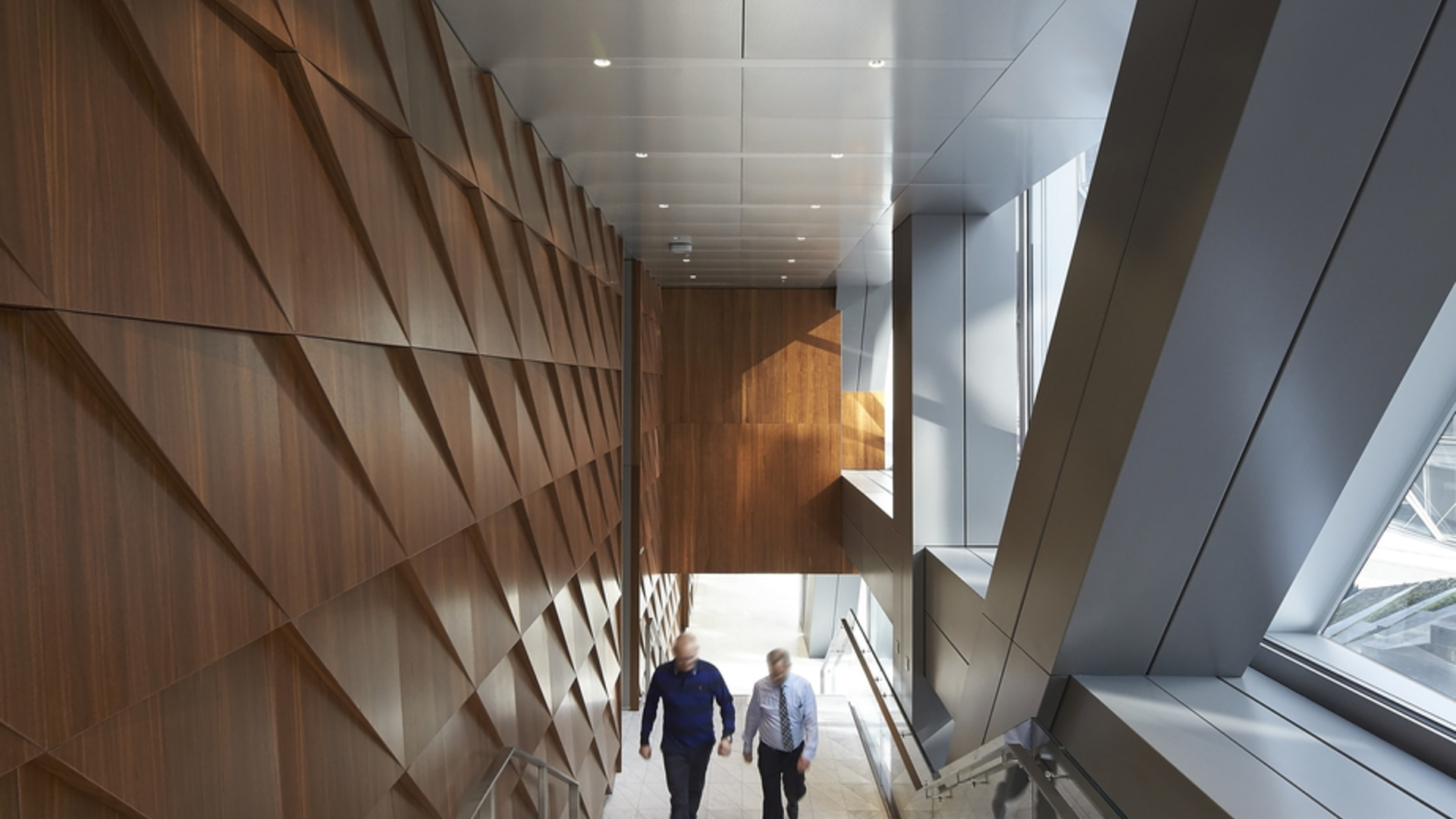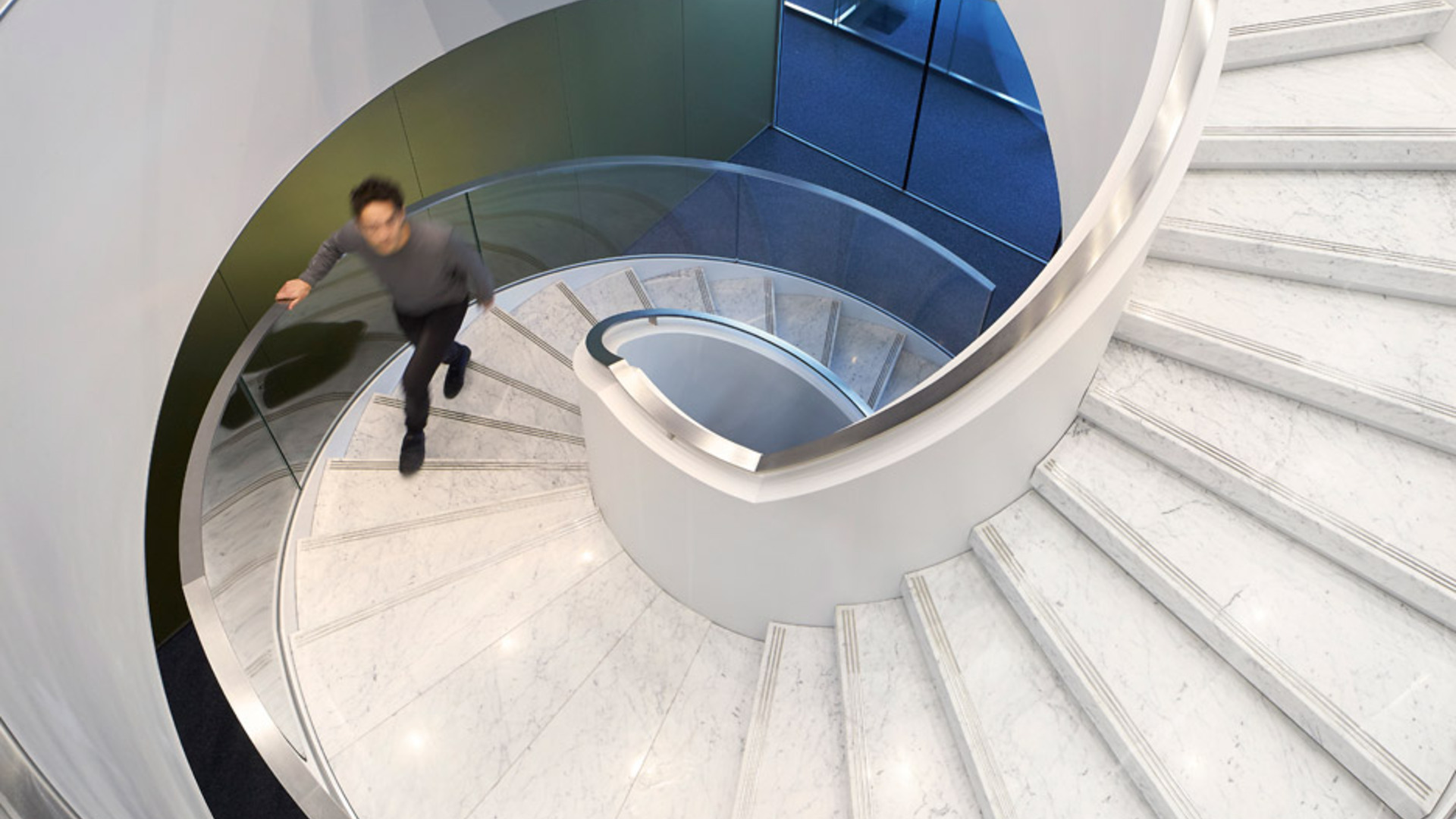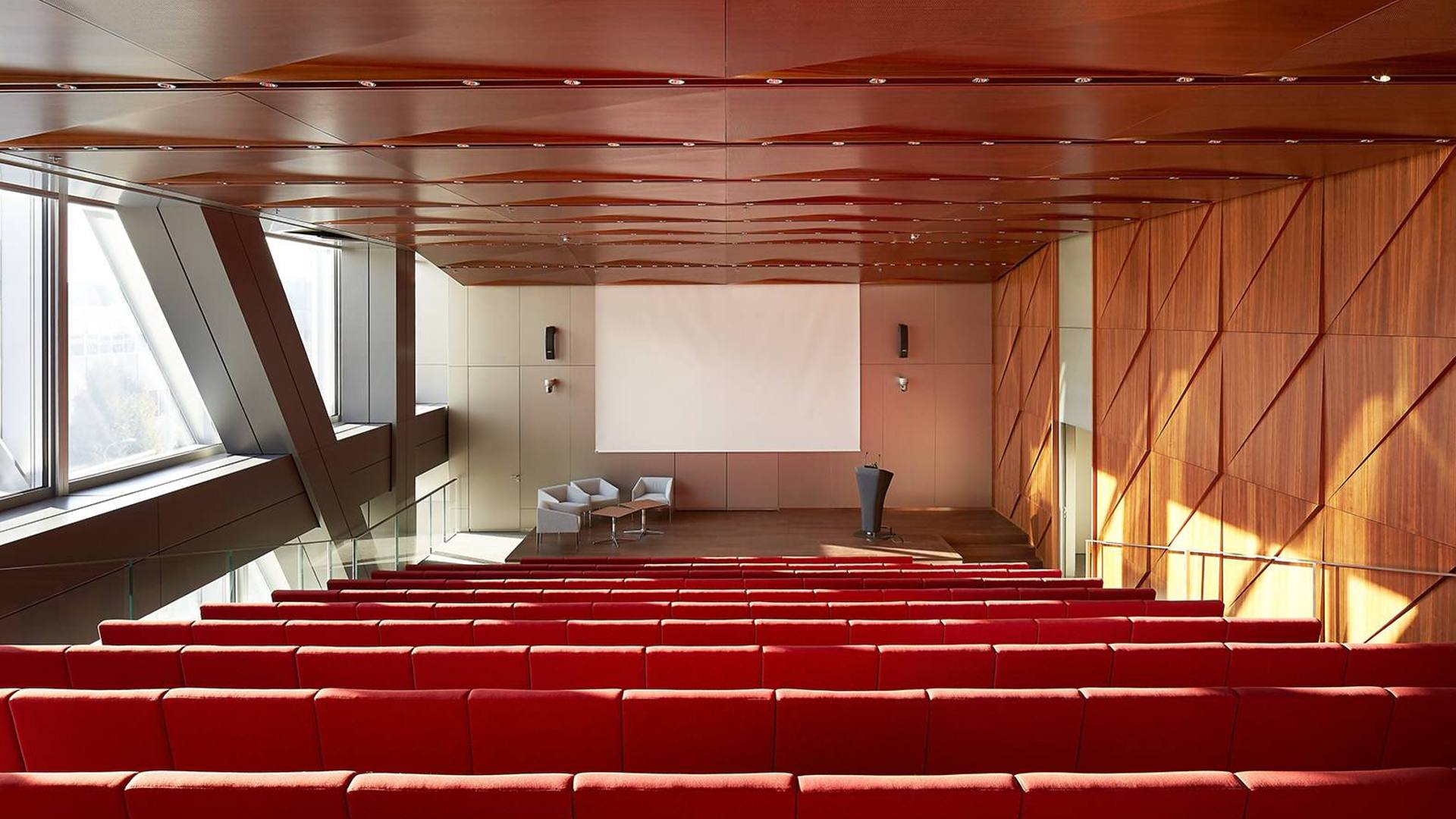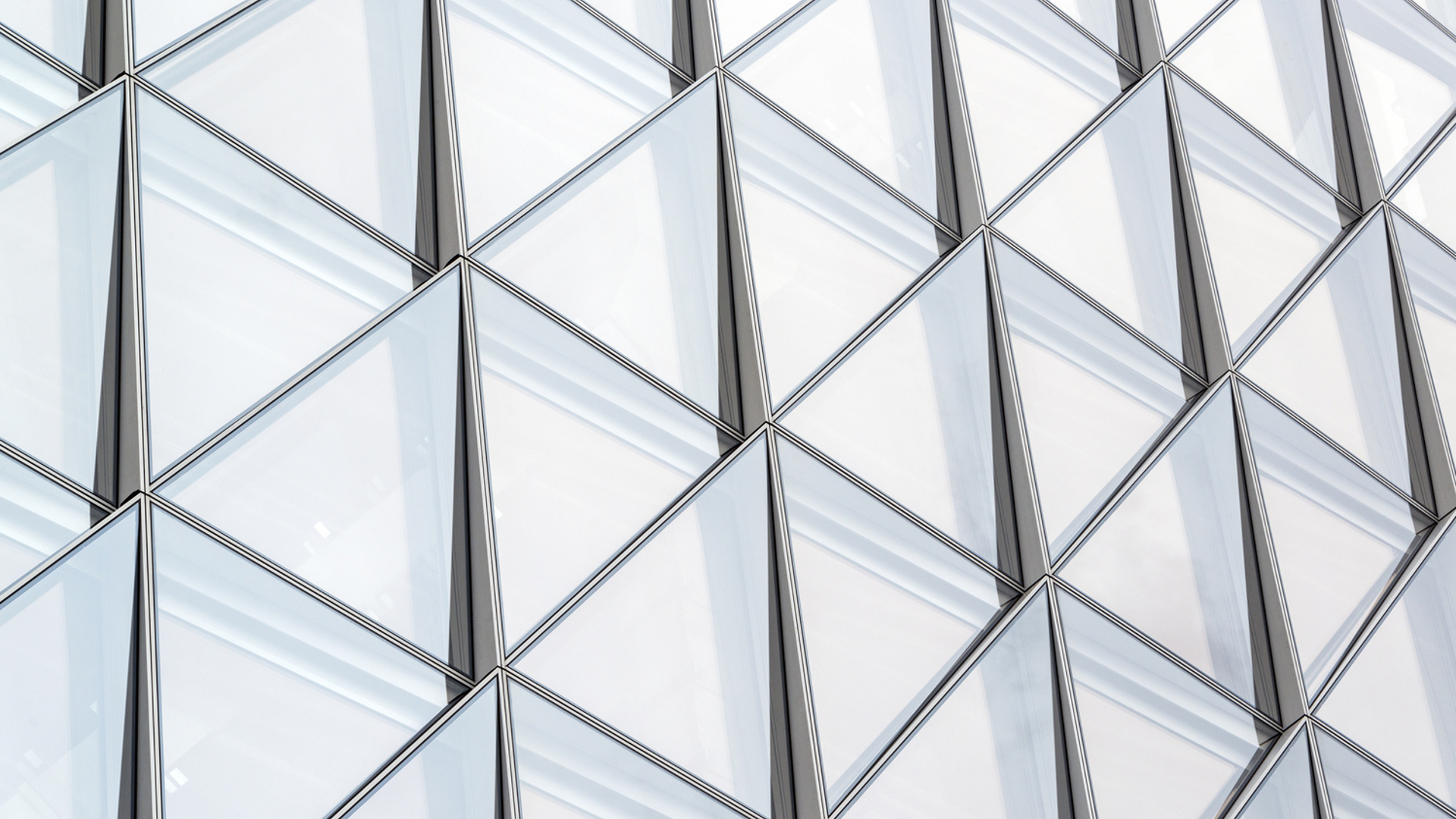JTI HEADQUARTERS
City: GENEVE
|Year: 2015
|Status: Completed
Surrounded by parkland and built on a former industrial site, the new JTI Headquarters is located in a Geneva district that is home to prestigious international organizations.
The design, which ranks among the most sustainable buildings in Europe, consolidates four existing JTI premises within a single landmark building and demonstrates SOM’s commitment to integrated design, sustainability, and innovative workplace solutions.
The architecture draws references not only from its immediate context, but also from Lake Geneva and the Alps, establishing a strong identity amid its illustrious neighbours while responding sensitively to the surrounding low-rise environment. The building’s opposing corners are elevated, which creates permeability through the site, opening it up to the local neighbourhood and facilitating direct pedestrian connections to a transportation hub.
Embodying JTI’s brand values - ‘enterprising, open, and challenging’—the design of the headquarters creates a workplace that breaks down corporate silos and contributes to an open and flexible organization. The design team identified three spatial typologies—landscape, social amenities, and dedicated workspace—to govern the way that employees and visitors experience the building.
A 'Continuous Landscape' concept integrates these three spatial types by creating a seamless experience that weaves through the building, connecting a variety of spaces. These include open plan offices, 66 meeting rooms, 31 collaborative work areas, and 23 coffee points, along with a business center, auditorium, fitness center and deli, plus two roof terraces and several social spaces.
This pathway is distinguished by a series of art installations by conceptual artist Liam Gillick, a colour palette of marble and grey tones, and furniture made of regionally-sourced materials. At the structural level, a torsional tube system, which enables column free office space, provides for maximum internal flexibility and future adaptability.
Photo credits: Hufton+Crow, Adrien Barakat, Johannes Marburg

